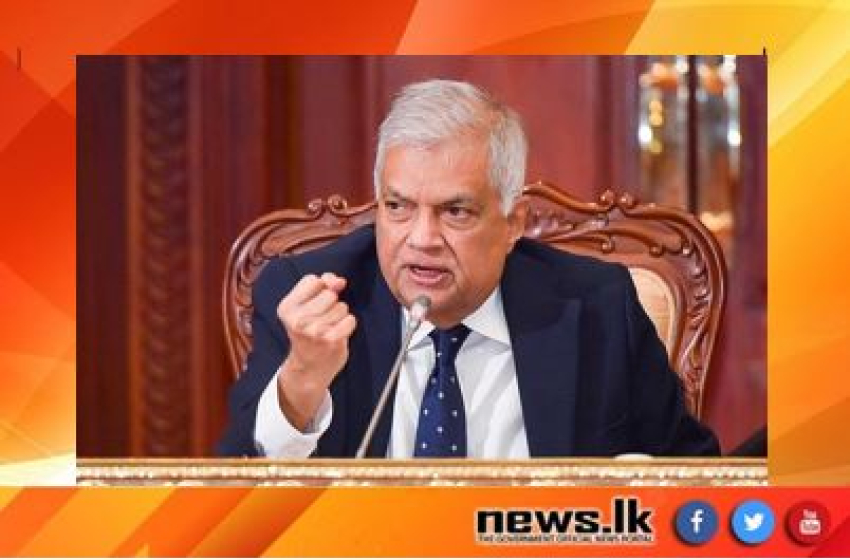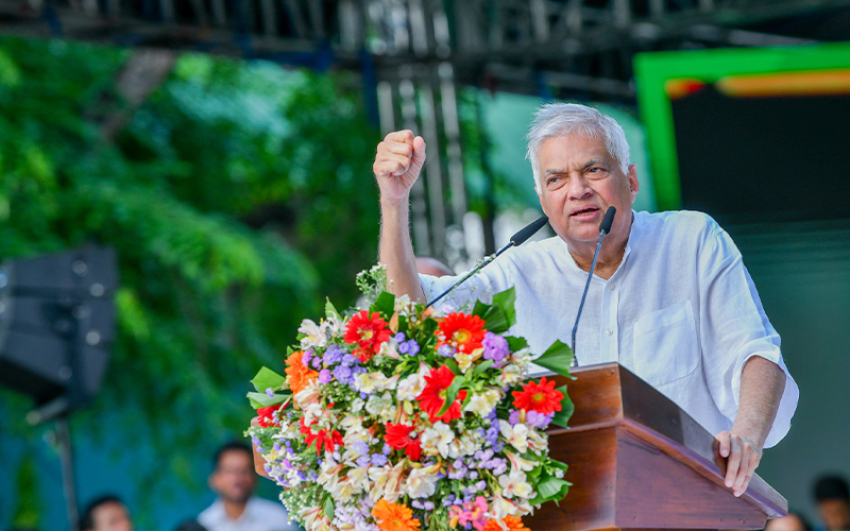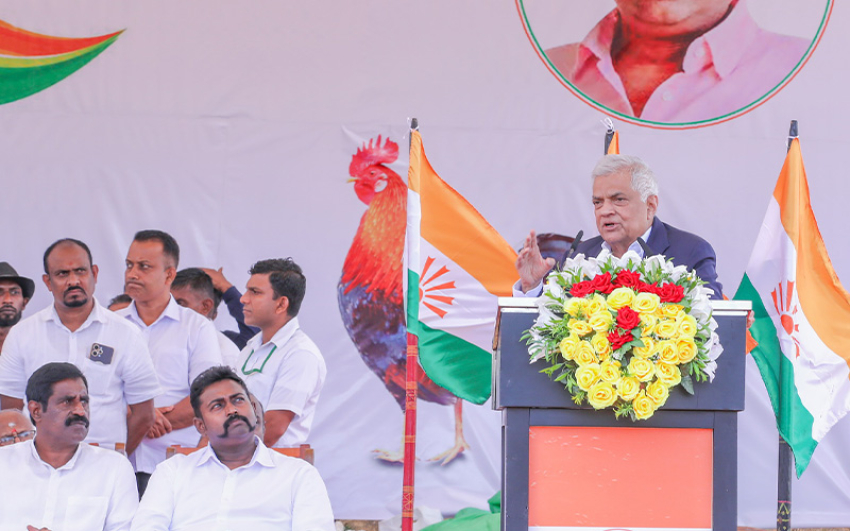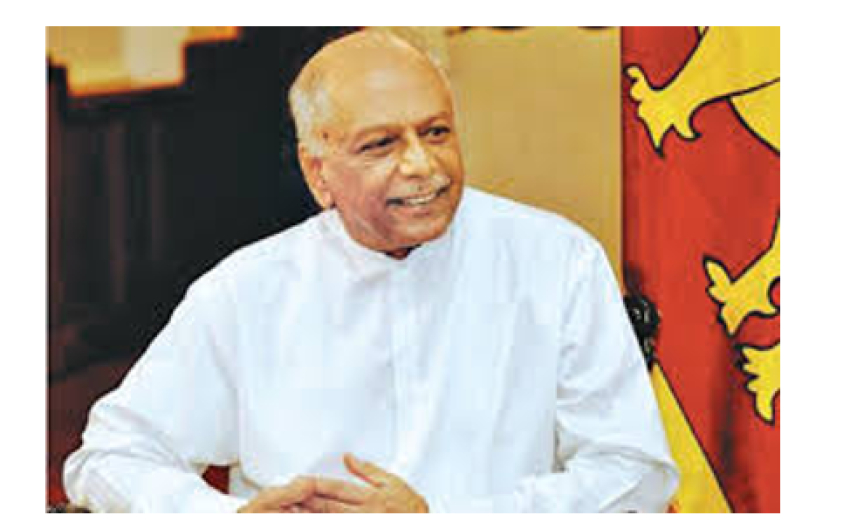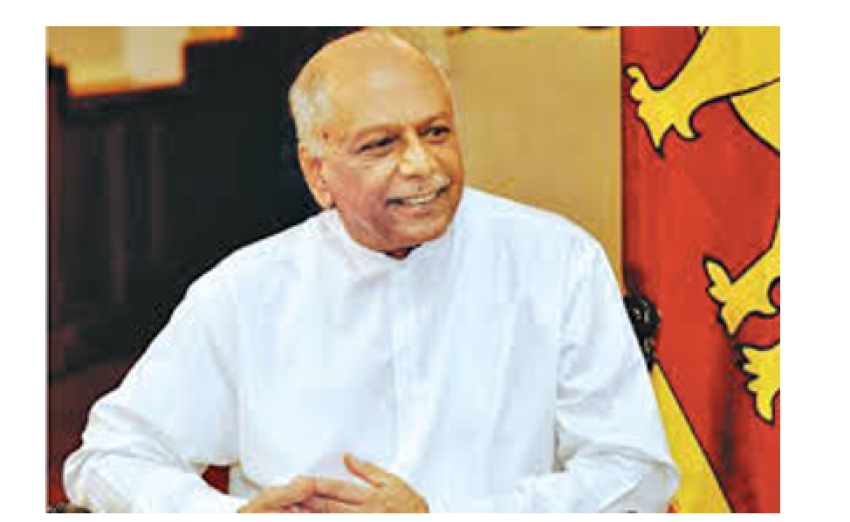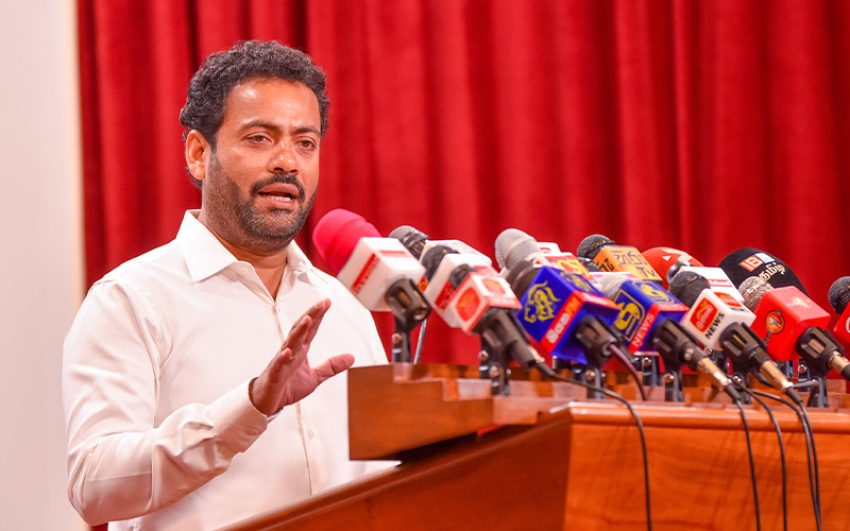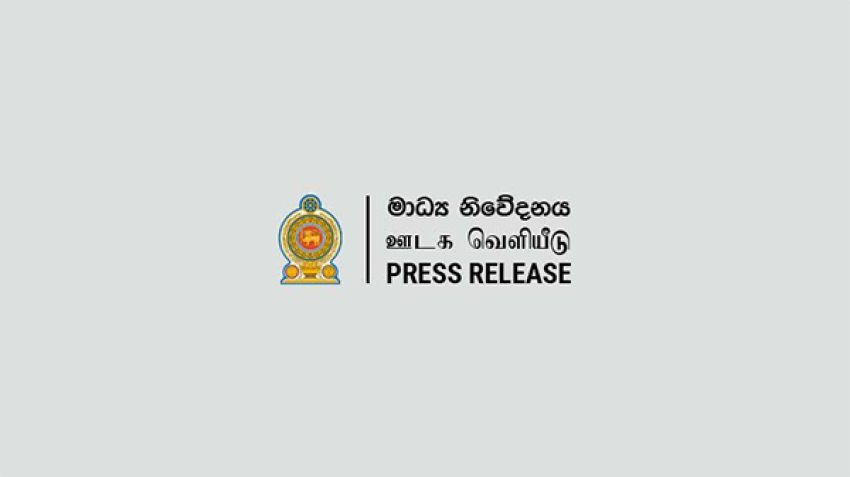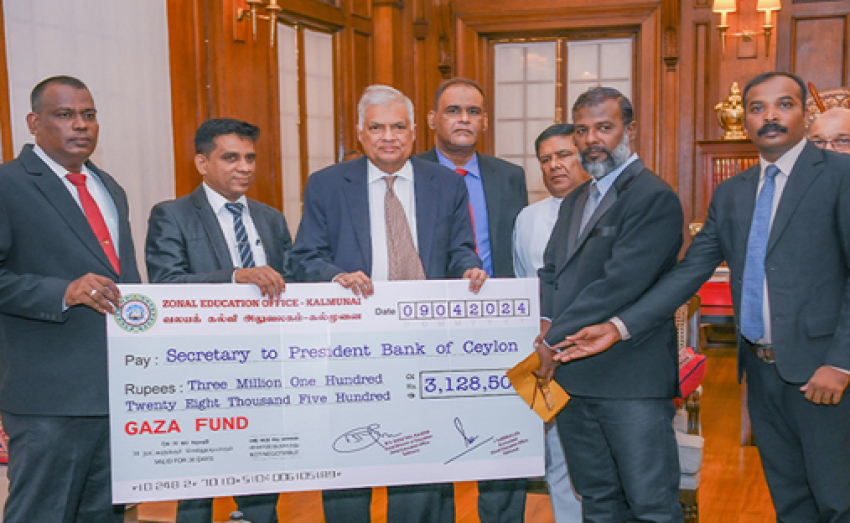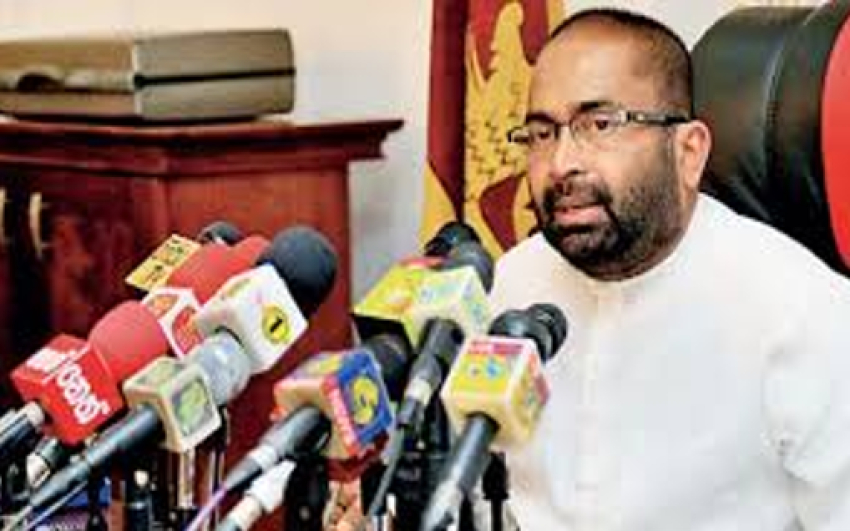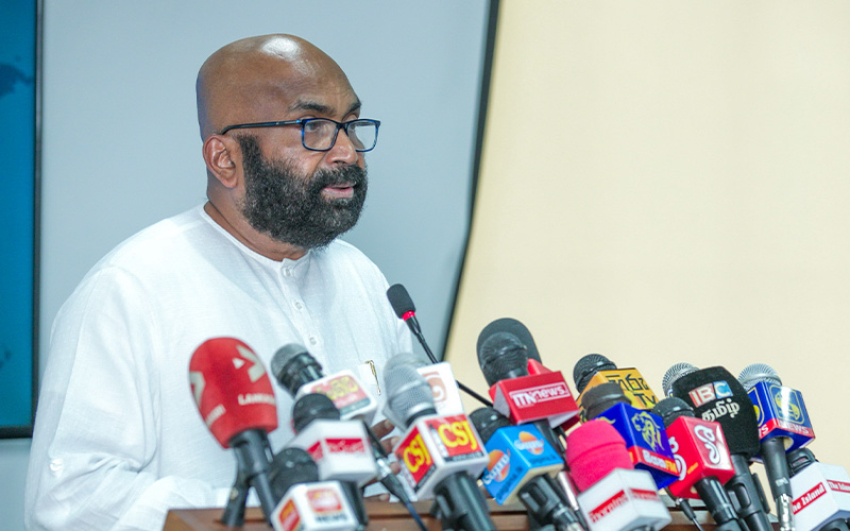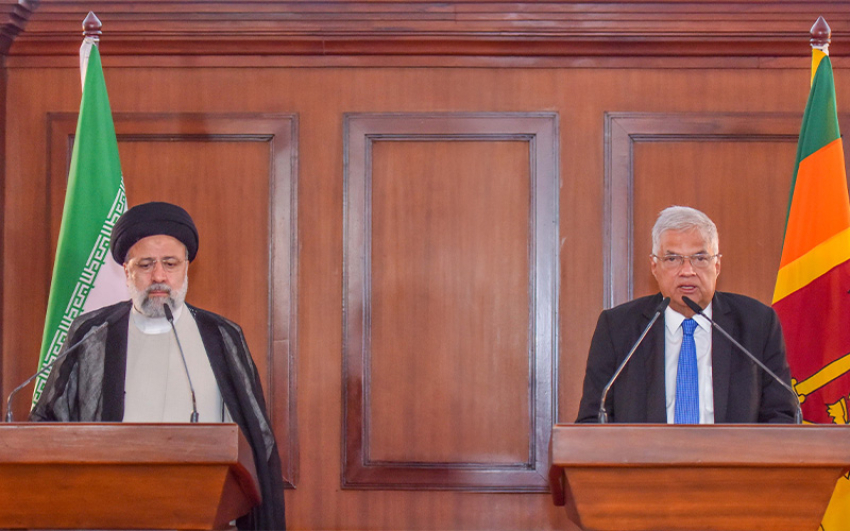This declaration came during a discussion held at the Presidential Secretariat earlier this morning (21) with the District Coordinating Committee Chairpersons. President Wickremesinghe underscored the adverse impacts of the economic crisis and the COVID-19 pandemic on the rural economy and the tourism sector, attributing the setbacks to the absence of a decentralized budget for districts over the past three years.
Expressing the government’s commitment to expedite projects and support rural communities, the President directed the committee chairpersons to prioritize development activities aimed at uplifting the rural economy. He emphasized the importance of unity among officials, urging them to collaborate on a cohesive development agenda without division between the central government and provinces.
In line with the 2024 budget estimate, the district committee chairpersons were briefed on the planned distribution of development funds for each district.
Expressing his views further President Wickremesinghe said;
For the past three years, there has been a significant absence of government capital expenditure, affecting both the central government and all provincial councils. This hiatus has led to a substantial economic downturn at the village level, causing the collapse of numerous local businesses and exacerbating the challenges faced by the tourism industry.
We must reconstruct the grassroots economy and this time, a substantial decentralized budget has been allocated. These funds are distributed to every district. At the regional division level, it is imperative to engage with representatives and solicit proposals for development activities.
In addition to the funds allotted to each district, extra financial support will be directed towards the upcountry areas. We anticipate allocating these resources for the development of the upcountry areas over the next 05 to 06 years, with a specific focus on the advancement of underdeveloped Sinhalese and Tamil villages in the upcountry area.
Furthermore, funds have been earmarked for provincial councils, ministries have been allocated capital funds, and various projects are underway with foreign aid. It is crucial to eliminate obstacles hindering the resumption of these projects and ensure that facilities are provided at the grassroots level.
Restarting development work that has been dormant for the past 03 years is a challenging task. There are also projects being carried out under foreign debt concessions that need to be recommenced. Although these projects have different timelines, we must initiate them simultaneously, requiring the collaboration of all officers. Additionally, the insights and suggestions of MPs and political representatives are essential.
In this endeavour, the chief secretary of each province, district secretaries, and central government officials should work harmoniously as a cohesive team. The governor, chief secretary, chairpersons of the new provincial committee, and chairpersons of the district coordination committees should oversee these activities on a monthly basis.
The primary aim of all these endeavours is to bring about tangible benefits for the villagers. This program needs to be executed in a manner that injects financial resources into the villages. While advancing the overall national economy, it is equally crucial to uplift the economic status of the villages.
Furthermore, through the agricultural modernization program, we anticipate a significant increase in agricultural production over the next two years. The goal is not only to boost agricultural output but also to establish a competitive agricultural sector, with the mid-term benefits directly impacting the village economy.
To ensure the effective implementation of these activities with a focus on the village economy, the responsibility is placed on the chairmen of the district coordination committees. In instances where there are unresolved issues, these can be brought to the attention of the committee led by the Prime Minister for solutions. Failing that, I propose discussing these matters in the Cabinet.
Mr. Prasanna Ranatunga, Minister of Urban Development and Housing and Chief Government Whip;
The concept, as envisioned by the Honourable President, has undergone extensive discussions among the Cabinet and ruling party members regarding the decentralized budget distribution. A committee, headed by the Prime Minister as per the President’s instructions, has been established to coordinate these activities.
The President has expressed a desire to identify priority projects that align with the needs of the people in a transparent manner. A draft has been meticulously prepared, covering the technical aspects comprehensively. The next step involves discussing the implementation method and devising a detailed plan.
It is imperative that everyone collaborates under a unified program. The provincial councils need to align with this approach. The provincial committees should actively engage and leverage their full potential, cascading the initiative from the district level down to the rural areas and eventually reaching the villages. This ensures a coordinated and inclusive approach to implementing the identified priority projects.
Director General of the National Planning Department Mr. W.A. Kumarasiri;
In unveiling the 2024 budget statement, the Honourable President has earmarked Rs. 11,250 million for the districts. The implementation of decentralized budgeting had been on hold for three years due to economic challenges and the impact of the COVID-19 pandemic. Consequently, a substantial amount has been allocated for decentralized budgeting this year. A draft has been meticulously prepared based on discussions at the official level, led by the Prime Minister. We anticipate further deliberations today, with the goal of forwarding it to district secretaries in the first week of January.
Once these projects gain approval in the district coordination committee meeting and are received by the National Planning Department, it is anticipated that the necessary allocations will promptly be released to the districts through the President’s Office.
Additionally, several small projects at regional and community levels had stalled midway. The priority is to resume and swiftly complete these projects, delivering their benefits to the people. Simultaneously, initiatives such as implementing small-scale water schemes, expanding small-scale electricity connections, and installing solar panels in government institutions and religious centres are on the agenda. These activities are expected to greatly benefit the rural economy. Projects focusing on provincial and rural small roads, as well as small bridges in plantation areas, have been identified for completion this year.
Furthermore, proposals have been put forth for projects aimed at boosting the rural economy, including the development of primary and secondary level schools, enhancing schools and religious places, promoting the tourism industry, mitigating damage caused by animals, and uplifting low-income families.
In attendance at this discussion were all District Coordination Committee Chairpersons, Provincial Governors, President’s Secretary Saman Ekanayake, Prime Minister’s Secretary Anura Dissanayake, President’s Senior Adviser on Economic Affairs Dr. R. H. S. Samaratunga, district secretaries, provincial chief secretaries and other officials.

